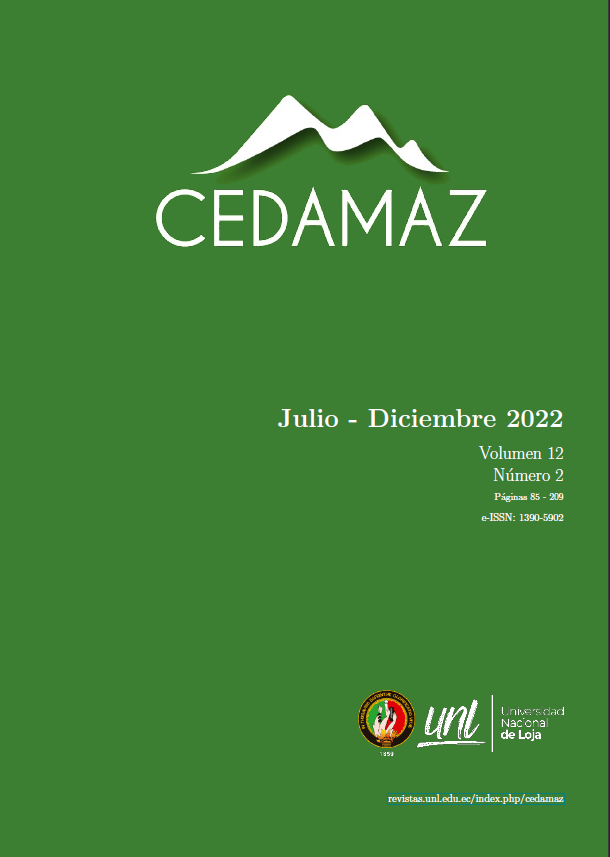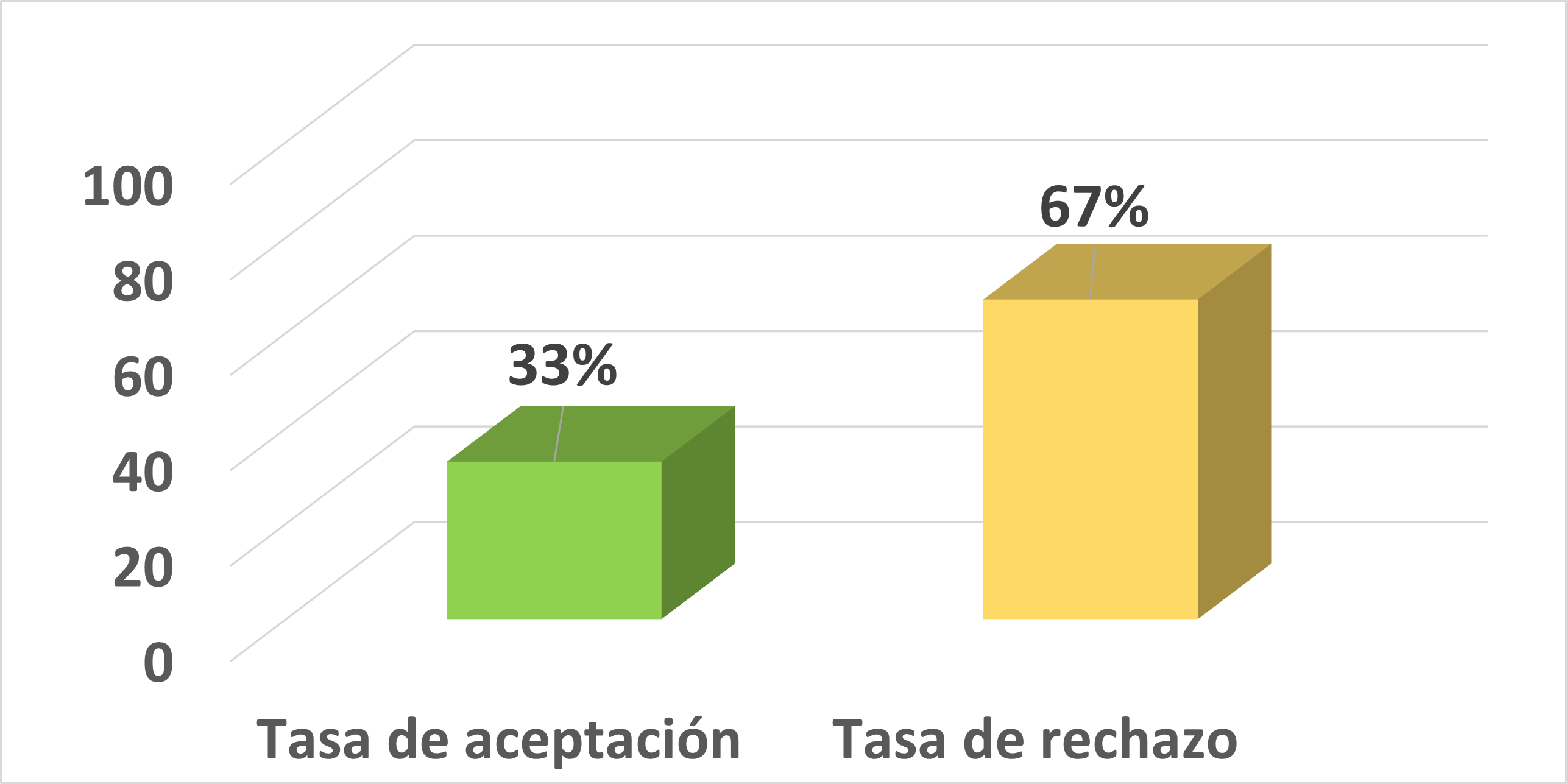Chatbot based on a light version of the BERT model to resolve concerns related to enrollment and approvals at the National University of Loja
DOI:
https://doi.org/10.54753/cedamaz.v12i2.1686Keywords:
Conversational agent, Artificial intelligence, Chatbot, BERT, NLP, XP methodologyAbstract
Abstract—This article presents the development of a chatbot using a light version of the BERT model called DistilBERT as a neural network, which helps students or professionals to solve concerns regarding enrollment and homologation for fourth level or postgraduate studies at the National University. of Loja (UNL). In this context, the project was divided into two stages: in the first, a bibliographic search was carried out in scientific articles on compatible technologies and tools to adjust the BERT model through training in the question and answer task; In the second stage, the development of the chatbot was carried out following the Extreme Programming (XP) methodology divided into four phases: planning, design, coding and testing. In the planning phase, the necessary requirements for the implementation of the chatbot were described, where the parameters for model training and the general description of the operation of the conversational agent through user stories were specified. In the second phase, the architecture was designed, in which all the elements that were part of the chatbot are shown. In the third phase, programming was carried out using the programming languages Python, JavaScript, Css, Html and the Flask microframework. Finally, in the last phase, performance, load and stress tests were carried out to see the behavior of the chatbot when subjected to a considerable load of requests.References
Al-Besher, A., Kumar, K., Sangeetha, M., y Butsa, T. (2022). BERT for Conversational Question Answering Systems Using Semantic Similarity Estimation. Computers, Ma-
terials and Continua, 70(3), 4763–4780. doi: 10.32604/cmc.2022.021033 DOI: https://doi.org/10.32604/cmc.2022.021033
Annamoradnejad, I., Fazli, M., y Habibi, J. (2020). Predicting Subjective Features from Questions on QA Web sites Using BERT. 2020 6th International Conference on Web Research, ICWR 2020, 240–244. doi: 10.1109/ ICWR49608.2020.9122318 DOI: https://doi.org/10.1109/ICWR49608.2020.9122318
Bagwe, R., y George, K. (2020). Automatic Numerical Question Answering on Table using BERT-GNN. 2020 11th IEEE Annual Ubiquitous Computing, Electronics and Mobile Communication Conference, UEMCON 2020, 118–124. doi: 10.1109/UEMCON51285.2020.9298028 DOI: https://doi.org/10.1109/UEMCON51285.2020.9298028
Bathija, R., Agarwal, P., Somanna, R., y Pallavi, G. (2020). Guided Interactive Learning through Chatbot using Bidirectional Encoder Representations from Transformers (BERT). 2nd International Conference on Innovative Mechanisms for Industry Applications, ICIMIA 2020 - Conference Proceedings(Icimia), 82–87. doi: 10 .1109/ ICIMIA48430.2020.9074905 DOI: https://doi.org/10.1109/ICIMIA48430.2020.9074905
Chan, Y., y Fan, Y. (2019). A Recurrent BERT-based Model for Question Generation. MRQA@EMNLP 2019 - Proceedings of the 2nd Workshop on Machine Reading for Ques-
tion Answering, 154–162. doi: 10.18653/v1/d19-5821 DOI: https://doi.org/10.18653/v1/D19-5821
Devlin, J., Chang, M.-W., Lee, K., y Toutanova, K. (2018). Bert: Pre-training of deep bidirectional transformers for language understanding. arXiv. doi: 10.48550/ARXIV.1810.04805
He, Y., Zhu, Z., Zhang, Y., Chen, Q., y Caverlee, J. (2020). Infusing Disease Knowledge Into BERT for Health Question Answering, Medical Inference and Disease Name Recognition. EMNLP 2020 - 2020 Conference on Empirical Methods in Natural Language Processing, Proceedings of the Conference, 4604–4614. doi: 10.18653/v1/2020.emnlp-main.372 DOI: https://doi.org/10.18653/v1/2020.emnlp-main.372
Nikas, C., Fafalios, P., y Tzitzikas, Y. (2020). Two-stage Semantic Answer Type Prediction for Question Answering Using BERT and Class-specificity Rewarding. CEUR Workshop Proceedings, 2774, 19–28.
Published
How to Cite
Issue
Section
License
Copyright (c) 2022 CEDAMAZ

This work is licensed under a Creative Commons Attribution-NonCommercial-NoDerivatives 4.0 International License.
Those authors who have publications with this journal, accept the following terms:
- After the scientific article is accepted for publication, the author agrees to transfer the rights of the first publication to the CEDAMAZ Journal, but the authors retain the copyright. The total or partial reproduction of the published texts is allowed as long as it is not for profit. When the total or partial reproduction of scientific articles accepted and published in the CEDAMAZ Journal is carried out, the complete source and the electronic address of the publication must be cited.
- Scientific articles accepted and published in the CEDAMAZ journal may be deposited by the authors in their entirety in any repository without commercial purposes.
- Authors should not distribute accepted scientific articles that have not yet been officially published by CEDAMAZ. Failure to comply with this rule will result in the rejection of the scientific article.
- The publication of your work will be simultaneously subject to the Attribution-NonCommercial-NoDerivatives 4.0 International (CC BY-NC-ND 4.0)









